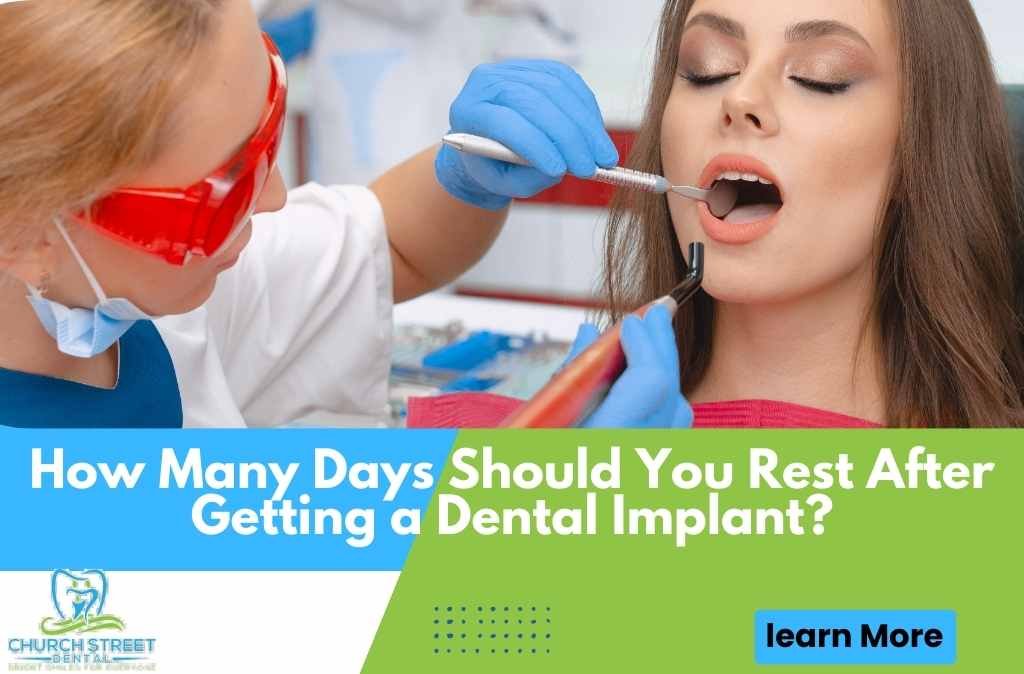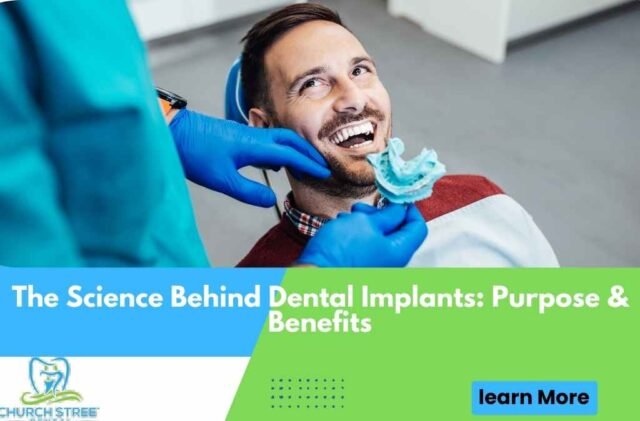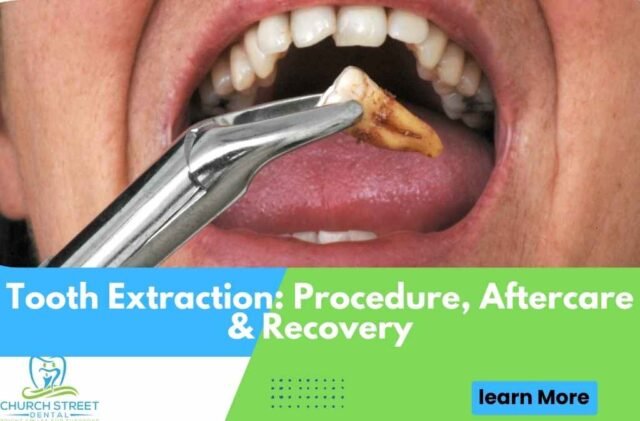Dental implants are a popular and effective solution for replacing missing teeth. They offer durability, functionality, and a natural appearance, making them a preferred choice for many patients. However, the process of getting dental implants involves a series of procedures that require careful post-operative care, including adequate rest. We will explore the recovery process after getting a dental implant and answer the crucial question: how many days should you rest after getting a dental implant? We will break down the recovery timeline, factors that influence healing, and essential tips for a smooth recovery. If you’re considering dental implants or have recently undergone the procedure, this article will provide valuable insights into what to expect during the healing process.
Understanding the Dental Implant Procedure
Before diving into the recovery process, it’s essential to understand what a dental implant entails. A dental implant is a titanium post that is surgically placed into the jawbone to replace the root of a missing tooth. Over time, the implant fuses with the bone in a process called osseointegration, creating a stable foundation for a replacement tooth.
The procedure involves several stages, including:
- Initial Consultation and Planning: The dentist evaluates your oral health and takes X-rays to ensure that you have sufficient bone density to support the implant.
- Implant Placement Surgery: The titanium post is placed into the jawbone during a surgical procedure. This can be done under local anesthesia, and sometimes sedation may be used.
- Osseointegration Period: After the implant is placed, the healing process begins, with the implant fusing with the bone over several months.
- Restoration: Once osseointegration is complete, a crown, bridge, or denture is attached to the implant, providing a permanent solution to missing teeth.
Given the complexity of the dental implant procedure, recovery time is essential to ensure that the implant integrates properly and that you heal without complications.
How Many Days Should You Rest After Getting a Dental Implant?
Recovery time after dental implant surgery varies from person to person, depending on factors such as the complexity of the procedure, your overall health, and how well you follow post-operative care instructions. However, a general recovery timeline can help you understand what to expect.
The First 24 Hours After Dental Implant Surgery
The first 24 hours after your dental implant surgery are critical for your recovery. During this time, you may experience some discomfort, swelling, and bleeding, which are normal parts of the healing process.
- Rest and Relaxation: It’s crucial to take it easy during the first day. Avoid any strenuous activities such as heavy lifting, exercise, or bending over, as these actions can increase blood flow to the surgical site, leading to increased swelling and bleeding.
- Ice Packs for Swelling: Use an ice pack on your face for 15-20 minutes at a time during the first few hours to reduce swelling and discomfort.
- Pain Management: Over-the-counter pain relievers, such as ibuprofen, can help manage pain and reduce inflammation. Your dentist may prescribe stronger medication if needed.
- Follow Post-Op Instructions: Your dentist will give you detailed aftercare instructions, including guidelines on eating, brushing, and using mouthwash. It’s essential to follow these instructions to avoid infection and promote healing.
During the first 24 hours, it’s important to rest and avoid physical exertion to ensure proper healing and minimize complications.
The First Few Days After Surgery: Days 2 to 5
The next few days after your dental implant surgery will involve continued healing. Swelling and bruising are common during this period, and you may still feel some discomfort. However, you should begin to feel better as the days progress.
- Limit Physical Activity: Although you may feel better after a couple of days, it’s essential to avoid heavy physical activity or exercise for at least 3 to 5 days. Resting during this period will allow your body to focus on healing.
- Soft Foods: Stick to a soft-food diet to avoid putting pressure on the implant site. Avoid hard, chewy, or hot foods that may irritate the surgical area. Foods like yogurt, mashed potatoes, scrambled eggs, and soups are ideal.
- Oral Hygiene: You can gently brush your teeth with a soft-bristled toothbrush but avoid brushing the implant site directly. Rinsing with warm salt water may help keep the area clean without irritating the wound.
- Monitor for Infection: Although rare, infection is a possible complication after dental implant surgery. Symptoms of infection may include increased swelling, redness, fever, or pus at the surgical site. If you experience any of these symptoms, contact your dentist immediately.
By Day 5, most patients will notice a significant reduction in swelling and discomfort. However, resting during the initial days is essential to promote healing and ensure the best possible outcome.
Week 1: Continued Rest and Monitoring
By the end of the first week, the swelling and discomfort should continue to subside. At this point, most patients can return to light activities such as walking or working from home.
- Rest: Continue to prioritize rest, especially in the first 5-7 days. While you may feel like resuming normal activities, it’s important not to push yourself too hard. The first week is a crucial time for osseointegration to begin, and your body needs energy for healing.
- Pain and Swelling: You should still expect some minor discomfort or swelling, but these symptoms should improve significantly by the end of the first week. If pain or swelling persists or worsens, consult your dentist.
Week 2 to Week 4: Gradual Return to Normal Activities
By the second week, the majority of the healing will have occurred, but it’s important to continue taking care of your surgical site.
- Physical Activity: Light exercises like walking or yoga may be resumed, but high-intensity workouts or activities that may risk injury to your mouth should still be avoided.
- Regular Follow-Up: A follow-up appointment with your dentist will be scheduled to check the healing progress and assess the implant’s integration with the jawbone.
- Dietary Considerations: You can gradually introduce more solid foods back into your diet, but be mindful of chewing near the surgical site to avoid unnecessary pressure on the implant.
The Next Few Months: Osseointegration
The healing process continues for several months as the titanium post integrates with the jawbone. This period is essential for the success of your dental implant. The osseointegration process typically takes 3 to 6 months, during which you should continue to avoid heavy physical activity and maintain good oral hygiene.
- Avoid Stress on the Implant: During this time, it’s important to avoid habits such as clenching or grinding your teeth, as these can put undue stress on the implant.
- Monitor Your Healing: Keep track of your progress and any discomfort. If you experience any unusual pain or complications, consult your dentist right away.
After Full Integration: Returning to Normal
Once the implant has fully integrated into the bone, your dentist will attach the crown, bridge, or denture to complete the restoration. At this point, you can resume all normal activities, including physical exercise and a regular diet.
Factors That Affect Your Recovery Time
Several factors can influence how quickly or slowly you heal after dental implant surgery. These include:
- Age: Younger patients tend to heal faster than older patients due to more robust bone density and healing ability.
- Health Status: Your overall health, including any pre-existing conditions such as diabetes, can affect the healing process.
- Smoking: Smoking can significantly delay the healing process and increase the risk of complications. It’s advised to quit smoking during the recovery period.
- Bone Density: Patients with lower bone density may require additional procedures, such as bone grafting, which can prolong the recovery process.
- Type of Implant: The complexity of the implant procedure and whether it is a single implant or part of a larger restoration plan (e.g., All-on-4 implants) can also affect recovery time.
Tips for a Smooth Recovery
To ensure a smooth and quick recovery after your dental implant surgery, consider the following tips:
- Follow Aftercare Instructions: Carefully follow your dentist’s post-operative care instructions to minimize the risk of complications.
- Stay Hydrated: Drink plenty of water to stay hydrated, but avoid drinking through a straw, as the suction can dislodge the blood clot and delay healing.
- Avoid Alcohol and Caffeine: Both alcohol and caffeine can interfere with healing, so it’s best to avoid them for the first few days after surgery.
- Use Prescription Medications as Directed: If your dentist prescribes antibiotics or pain relievers, take them as directed to prevent infection and manage pain.
Learn More: Dental Implant in Chicopee, MA
Conclusion
In conclusion, the recovery time after a dental implant surgery varies, but adequate rest during the first few days is essential for healing. Generally, taking it easy for the first 5-7 days after surgery and avoiding physical exertion can greatly enhance the healing process. Your dentist will guide you throughout your recovery, ensuring the best outcome for your dental implant.
If you are looking for expert dental care, the team at Church Street Dental is ready to assist you. As a trusted Dentist in Chicopee, MA, Church Street Dental offers comprehensive services to help you achieve a healthy, beautiful smile. From dental implants to regular check-ups, their experienced team will ensure that your recovery is smooth and successful. Contact them today to schedule a consultation.






